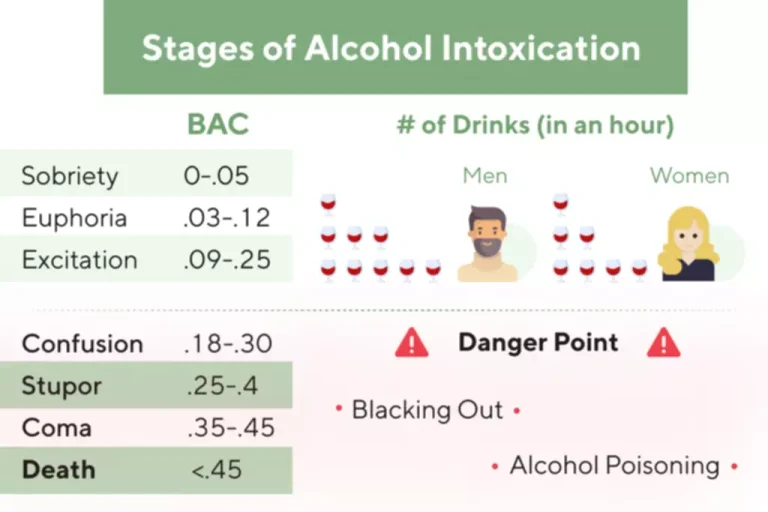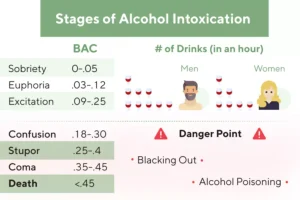
Shame and guilt can be powerful emotions that can lead to negative self-talk and shame and guilt in recovery self-deprecation, and self-compassion is a way to treat oneself with kindness and understanding. This practice involves acknowledging mistakes and perceived failures instead of denying or hiding them. Through self-compassion, individuals can begin to let go of their shame and guilt and move towards self-forgiveness and healing.
How Do Feelings of Guilt and Shame Feed Addiction?
Learning about how alcohol affects the brain helped me move on from the guilt of drinking more than I wanted to for many years. Alcohol use disorder is a serious condition, and by treating my past self as someone who was suffering, I can feel compassion rather than be stuck in guilt. Due to the shame, a person may be isolated from other people, causing a detrimental impact on relationships and making it hard to find strong social support. While shame is a natural offshoot of guilt and remorse, internalizing it in recovery is dangerous. When shame becomes part of your self-identity, it can prevent you from moving forward in recovery.
The Influence of Guilt and Shame on Recovery
Being able to forgive removes the shame and feeling that you can move on. Forgiving ourselves or others and releasing that choking experience of guilt is crucial to overcoming a relapse or pushing through on your journey of recovery. It’s important to forgive others too, as when you do so, you let go and accept.
Addictions We Treat
If you’re struggling with shame or guilt in addiction recovery, Art Therapy for Coping with Shame and Guilt might be right for you. Don’t miss out on an opportunity to decrease your negative emotions by engaging your creative talents. While some approaches to therapy involve cognitive restructuring or trying to change negative thought patterns, ACT is centered around mindfulness and the acceptance of thoughts and emotions without judgment. This can be particularly beneficial for those experiencing shame and guilt, as it allows them to acknowledge these feelings without becoming overwhelmed or mired in self-blame. In CBT sessions for shame and guilt, the therapist will work with the client to identify negative thought patterns and beliefs that contribute to their feelings of shame or guilt. Through cognitive restructuring https://ecosoberhouse.com/ techniques, the client is encouraged to challenge these automatic thoughts and replace them with more positive self-talk.
Co-occurring Mental Health Conditions
- Although these two terms are commonly blended together, they are distinctive psychological states.
- To overcome shame and guilt, you must first understand where it comes from.
- People who feel guilty may believe that they are good people who have done a bad thing, rather than feeling that they are bad people.
Shame often arises when an individual feels inadequate or unworthy, constantly reminding them of their mistakes or shortcomings. This emotion perpetuates destructive behaviors in individuals as they strive to numb these feelings through substance abuse. Guilt, on the other hand, is a more constructive emotion that occurs when an individual has violated their moral code. However, excessive guilt can become counterproductive and lead to self-blame and low self-esteem. Descriptive statistics were obtained for all variables included in the analysis.
What is the Difference Between Shame, Guilt, and Regret?

Mindfulness techniques can help you stay grounded in the present moment. According to studies in neuroscience, our propensity to think and act in a specific way increases the more we do so. When we alter our brains, it enhances the chance of thinking in new ways and doing other activities that are more healthful than using substances. However, addressing these emotions is crucial for maintaining mental well-being and sustaining recovery. Acknowledge the impact of your actions and work toward personal growth and accountability.
Ask for Forgiveness
Rather, these additional sources of assistance add extra layers of safety nets that can improve the odds of success during the addiction recovery process. Social support has been found to be a crucial element of successful addiction recovery. Those struggling with addiction require the support of others who understand the challenges they are facing in order to stay motivated, focused and accountable. Joining a 12-Step Program for Continued Support can be an effective way to receive ongoing assistance throughout the recovery process. Developing a plan for relapse prevention is an essential step in addiction recovery.

Keep in mind that as you progress through therapy, shame and guilt can actually intensify, as you’ll be exploring behaviors you may now regret. Sometimes, the weight of shame and guilt can be overwhelming, making it difficult to move forward. In these cases, seeking the support of a mental health professional can provide you with the tools and strategies to manage these feelings effectively. This type of support can take many different forms, including one-on-one therapy sessions or group counseling. It provides a safe space for individuals to talk about their experiences openly and get guidance on how to navigate the complex emotions and challenges that come with addiction recovery.

This article will help you understand the importance of dealing with guilt and shame in recovery and help you find support as you work through the process. Joining a 12-Step Program provides individuals with access to peers who have overcome similar struggles thus creating an empathetic environment providing comfort when needed. In addition to gaining accountability partners within such groups that significantly help sustain commitment towards recovery goals. These groups offer peer mentoring relationships where each member encourages and strengthens the other based on shared experience battling addictions. Interestingly enough, these alternative therapies were not always considered legitimate treatments for managing shame and guilt.

Mindfulness Practices
It involves treating yourself with the same kindness and understanding you would offer a friend. Shame, on the other hand, comes from internalizing that guilt and believing you’re a bad person because of your addiction. This can be even more damaging, leading to isolation and giving up on recovery. It entails making peace with a former self and admitting that it is simple to chastise oneself in retrospect for having had less insight at the time. As difficult as it may be to cultivate compassion as a remedy for shame, it is a task that must be met. There must be more emotional intelligence in the face of this potentially crippling feeling through open exploration and discussion of shame and anger toward oneself, others, and circumstances.
